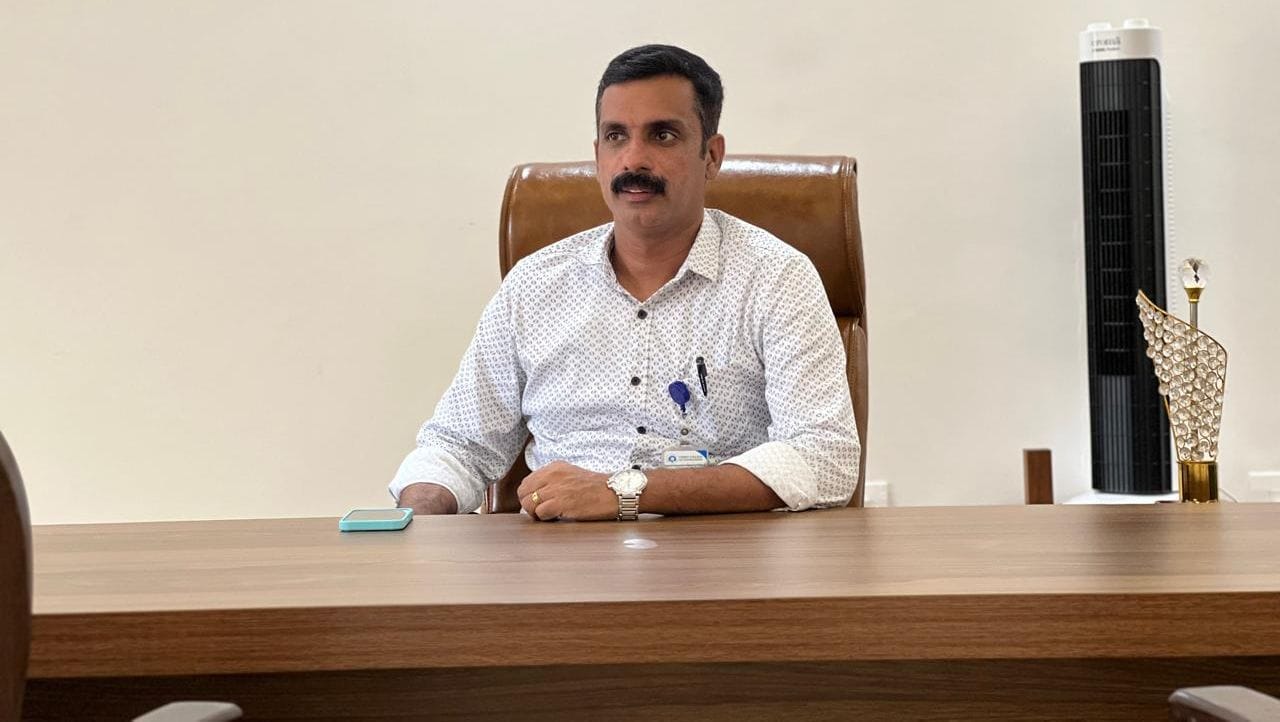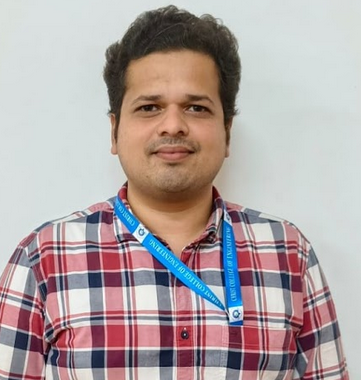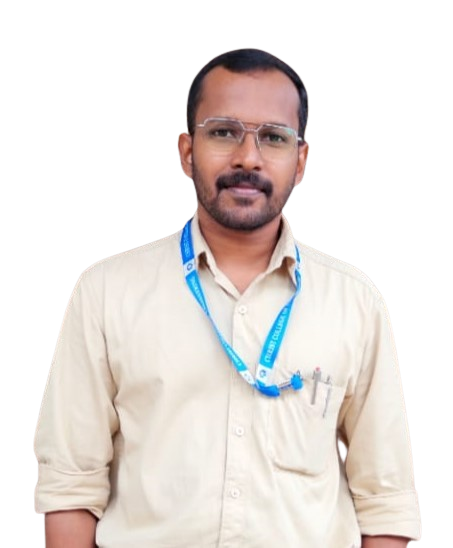About
The Department of Mechanical Engineering at Christ College of Engineering (CCE) is committed to making the student's future ready through proper mentoring, holistic training and excellent facilities. The vision of the department is to become one of the top knowledge hubs in Mechanical Engineering in the country. To achieve this target, the department strives to mould high quality graduates through rigorous training in all walks of Engineering. Department provides excellent state-of-the-art infrastructure, industry standard equipment and a dedicated and well experienced team of faculty members who are highly qualified and trained in reputed institutes and will transform our students to professionals. Keeping in view of industry ready engineers, the department ensures that students are equipped with industry relevant skills during their curriculum. The students are provided with good computational knowledge and are also exposed to a variety of design and analysis software like CATIA, ANSYS, CFD, AutoCAD, Onshape and CNC programming conducted on a regular basis which benefits our stakeholders. Department has initiated professional body for SAE, ASME, and PMI. Which direct our students to live societal problems, and guide them to understand international standards. The broad and flexible program allows students to customize their programs to meet their career goals. Our students have displayed their engineering and leadership skills by winning in several National and International level competitions. In addition to the regular academic work, the students of the department are encouraged to participate in hackathons, technical fests, co-curricular activities. While keeping the fundamental aspects of Mechanical Engineering in CCE we focus on interdisciplinary knowledge and guide them to do interdisciplinary projects. Department has initiated MoU and beyond the syllabus labs with industries to bridge the gap between industry and academia. Consistent academic results and high placement status in core and allied areas makes our department a preferred destination for all stakeholders.
Departments
Home / Academics / Department / About
Vision
To become a nationally recognised knowledge hub in Mechanical Engineering by moulding professionally competent and socially responsible engineers.
Mission
- 1.
To create a conducive learning platform for students to excel as professionals, through quality technical education and training.
- 2.
To involve students in socially committed projects and programs to broaden their knowledge and integrity.
- 3.
To mould students with good leadership qualities, ethical values, and life-long learning.
Academic Uniqueness
- 1.
Wide range of applications: Mechanical Engineering has a wide range of applications, including aerospace, automotive, biomedical, energy systems, and manufacturing. This diversity allows students to choose from a range of career paths after graduation.
- 2.
Hands-on learning: The Department of Mechanical Engineering typically emphasizes hands-on learning, giving students practical experience with designing, building, and testing mechanical systems. This approach allows students to apply theoretical concepts to real-world problems, which is essential for success in the field.
- 3.
Integration of computer-aided design (CAD) and simulation software: The use of computer-aided design and simulation software is essential for mechanical engineering. It allows students to model complex systems, analyze the performance of mechanical components, and optimize designs for improved performance.
- 4.
Interdisciplinary collaborations: The Department of Mechanical Engineering often works closely with other departments such as Electrical Engineering, Computer Science, and Materials Science to develop interdisciplinary solutions to real-world problems. This collaboration fosters innovation and pushes the boundaries of what is possible in the field.
- 5.
Focus on sustainability: In recent years, the Department of Mechanical Engineering has increasingly focused on sustainability, strongly emphasizing renewable energy and energy efficiency. This focus ensures that graduates have the knowledge and skills to tackle the world's pressing energy and environmental challenges.
Programme Details
Program Educational Objectives (PEOs) expand_more
PEO-1
Apply technical knowledge and skills to find feasible solutions in mechanical engineering domains and allied industries.
PEO-2
Evolve as responsible professionals capable of solving socially relevant problems and pursue higher education and research.
PEO-3
Exhibit professionalism, team work, and ethical attitude through continued learning to accomplish organisational goals.
Program Outcomes (POs) expand_more
PO-1
Engineering Knowledge: Apply the knowledge of mathematics, science, engineering fundamentals, and an engineering specialization to the solution of complex engineering problems.
PO-2
Problem analysis: Identify, formulate, review research literature, and analyze complex engineering problems reaching substantiated conclusions using first principles of mathematics, natural sciences, and engineering sciences.
PO-3
Design/development of solutions: Design solutions for complex engineering problems and design system components or processes that meet the specified needs with appropriate consideration for the public health and safety, and the cultural, societal, and environmental considerations.
PO-4
Conduct investigations of complex problems: Use research-based knowledge including design of experiments, analysis and interpretation of data, and synthesis of the information to provide valid conclusions.
PO-5
Modern Tool Usage: Create, select, and apply appropriate techniques, resources, and modern engineering and IT tools including prediction and modeling to complex engineering activities with an understanding of the limitations.
PO-6
The engineer and society: Apply reasoning informed by the contextual knowledge to assess societal, health, safety, legal, and cultural issues and the consequent responsibilities relevant to the professional engineering practice.
PO-7
Environment and sustainability: Understand the impact of the professional engineering solutions in societal and environmental contexts, and demonstrate the knowledge of, and need for sustainable development.
PO-8
Ethics: Apply ethical principles and commit to professional ethics and responsibilities and norms of the engineering practice.
PO-9
Individual and Team work: Function effectively as an individual, and as a member or leader in teams, and in multidisciplinary settings.
PO-10
Communication: Communicate effectively with the engineering community and with society at large. Be able to comprehend and write effective reports documentation. Make effective presentations, and give and receive clear instructions.
PO-11
Project management and finance: Demonstrate knowledge and understanding of engineering and management principles and apply these to one’s own work, as a member and leader in a team. Manage projects in multidisciplinary environments.
PO-12
Life-long learning: Recognize the need for, and have the preparation and ability to engage in independent and lifelong learning in the broadest context of technological change.
Program Specific Outcomes (PSOs) expand_more
PSO-1
Apply the knowledge of Thermal Sciences, Mechanical Design and Manufacturing Principles for analyzing and evaluating problems in the domain of Mechanical Engineering.
PSO-2
Apply the knowledge gained through multidisciplinary learning to solve real life problems.
PSO-3
Effectively use modern technology tools such as CFD, CAD/CAM and 3-D printing in Mechanical Engineering practice.



















